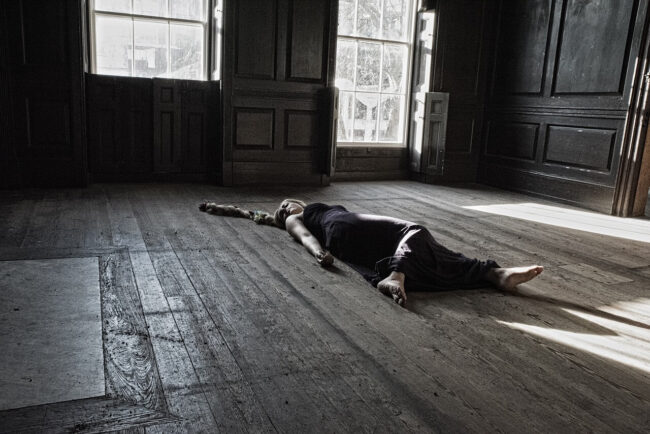When you delve into the realm of addiction treatment in Johannesburg, you’ll find that addressing underlying issues is a cornerstone approach. However, two less-often highlighted aspects of this process might stir your curiosity – the cultural diversity aspect and the societal stigma aspect. Both significantly influence addiction treatment but are frequently under-addressed, even though they could potentially reshape the path to recovery for many individuals.
Cultural Diversity
A dominant but often overlooked aspect in the South African context. In a culturally diverse city like Johannesburg, your treatment approach must be culturally sensitive to be effective. Cultural backgrounds shape belief systems, which, in turn, affect perceptions of and attitudes towards addiction and recovery. One person might view addiction as a personal failing, another as a medical condition, and yet another as a spiritual crisis. This diversity means that a one-size-fits-all approach might not resonate with everyone seeking treatment.
For instance, a person from a traditional African background might find solace and support in community-based healing practices. Conversely, someone else might respond more positively to western therapeutic approaches. As an addiction counsellor, you’ll need to appreciate these nuances to meet your patient’s unique needs. Acknowledging and respecting your patient’s cultural beliefs can lead to a stronger therapeutic alliance and promote the process of healing.
Societal Stigma
On the other side of the spectrum is societal stigma, which presents a significant barrier to addressing underlying issues in addiction treatment. Stigma around addiction can isolate you, discourage you from seeking help, and perpetuate harmful stereotypes. If you’re seeking treatment in Johannesburg, you might face this stigma not only from society at large but sometimes, unfortunately, from healthcare professionals as well.
Stigma can interfere with open and honest communication between you and your addiction counsellor. It can also deter you from seeking treatment, fearing the discrimination and judgement that might come with admitting addiction. Therefore, it’s vital to build an environment of acceptance and empathy, one that enables you to express your struggles and emotions freely. Overcoming stigma takes time and courage, but with a supportive counsellor, you can challenge societal prejudices and pave the way to recovery.
To end the discussion on these two critical aspects of addressing underlying issues in addiction treatment in Johannesburg, here are five frequently asked questions that South African audiences might have:
- How can cultural beliefs influence the effectiveness of addiction treatment?
- How can addiction treatment be tailored to respect diverse cultural beliefs?
- How does societal stigma impact the willingness of individuals to seek addiction treatment?
- What can addiction counsellors do to mitigate the impact of societal stigma on their patients?
- How does a supportive and stigma-free environment contribute to the success of addiction treatment?
Tools to Help Address Underlying Issues
- Culturally Responsive Therapy: This tool can be incredibly beneficial in a diverse city like Johannesburg. It allows you as a counsellor to take into consideration your patient’s cultural background and tailor your treatment approach accordingly. It fosters an environment where your patient feels seen, heard, and understood.
- Psychoeducation: You can use psychoeducation to demystify addiction, emphasizing that it’s a disease and not a moral failing. This tool helps reduce the stigma associated with addiction by imparting knowledge, thereby promoting understanding and empathy.
- Support Groups: As an addiction counsellor or a person seeking treatment, you might find support groups immensely helpful. They provide a platform for sharing experiences, offering mutual support, and learning from others who are facing similar challenges. This sense of community can combat the isolation often experienced due to societal stigma.
- Trauma-Informed Care: Considering that many individuals seeking addiction treatment have a history of trauma, trauma-informed care can be an essential tool. It ensures that you, as a counsellor, acknowledge and address past traumas that might be influencing your patient’s addictive behaviors.
- Advocacy and Public Awareness Campaigns: These tools are useful for challenging societal norms and beliefs about addiction. As an addiction counsellor, you can play a role in these initiatives, making your voice heard and acting as an advocate for your patients. For you as a patient, participating in these campaigns can empower you, reduce feelings of shame, and create a sense of belonging and acceptance in the community.
By understanding and addressing these crucial aspects of addiction treatment, you can make your journey to recovery more fulfilling and personal. Remember, seeking help is a sign of strength, and with the right approach, you can overcome the barriers in your path to a healthier life.
When it comes to tackling root causes in substance dependency therapy in Johannesburg, recognizing cultural diversity and challenging societal stigma are paramount. Both these components can shape the journey towards healing and recovery. With our team of culturally sensitive therapists, you’ll find that your beliefs and experiences are respected and acknowledged. Our approach to therapy ensures that your unique needs are met, and your recovery is as individualized as you are.
Moreover, the societal stigma around addiction can be overwhelming and isolating. Here at our center, we strive to create an environment of acceptance and empathy. We encourage open communication, making it possible for you to express your struggles freely. So, don’t let stigma deter you from seeking help. Instead, reach out to us. Remember, you’re not alone in this journey – with our professional support and guidance, you can challenge societal prejudices, navigate the complexities of substance dependency, and set forth on your path to recovery.

